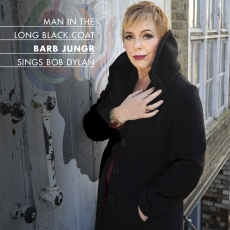Barb Jungr - Man in the Long Black Coat Live in NY - Wall Street Journal
Ms. Jungr's most stunning reinterpretation, and the centerpiece of her 10-night run at the Metropolitan, is what is possibly Mr. Dylan's most iconic song, "Like a Rolling Stone." I've always thought that Mr. Dylan was inspired by "Nobody Knows You When You're Down and Out," a classic Bessie Smith quasi-blues from 1929. Mr. Dylan took the basic essence of that idea, yet gave it a whole new meaning by shifting it from the first person ("Once I lived the life of a millionaire...") to the second ("once you dressed so fine..."). About halfway through her opening show on Tuesday, Ms. Jungr tipped her hat when she described Mr. Dylan as "a man not very much in touch with his feminine side"-and hers is a very feminine take on "Rolling Stone." Mr. Dylan sings it like a jilted ex-lover in a cautionary tale of retribution and even revenge; when he shouts, "How does it feel," it's a veritable cry of "J'Accuse!"-as if he were literally twisting the knife, Italian opera style, into the woman who had done him wrong. Ms. Jungr, for the first time, sings it with mercy and compassion, like one sister to another, and when she asks, "How does it feel," it becomes, at long last, a genuine question to be answered.
It's Ms. Jungr's use of rhythm that identifies her as someone on the jazz-cabaret-standards side of the fence, rather than a folk singer. Her recording of the "Rolling Stone" has generous production values, i.e., a full band, but I much prefer the slower live version, with just Tracey Stark on piano and the understated hint of a clave pattern. She shows how Mr. Dylan's homage to a great blues singer, "Blind Willie McTell," is itself nothing like a blues, but rather a turbulent aria in 5/4. (Elsewhere in the show, she brings out Mr. Dylan's social conscience by showing us that "With God on Our Side" is more relevant than ever, now that all wars seem to be about God.) She also reveals that when Mr. Dylan wants to get romantic he, rather like Richard Rodgers, writes a waltz, as in "Sara" and "I Want You." She sings them both with a passion and tenderness that not even Mr. Dylan himself could have imagined.

